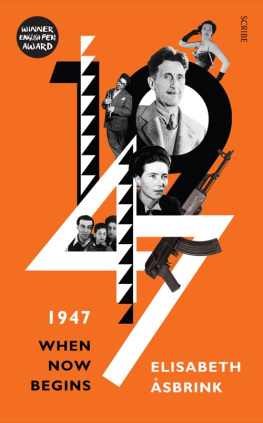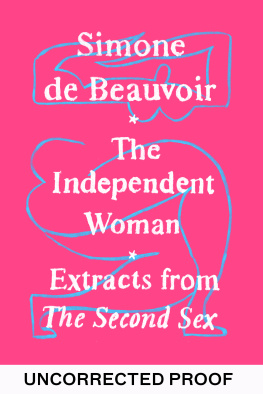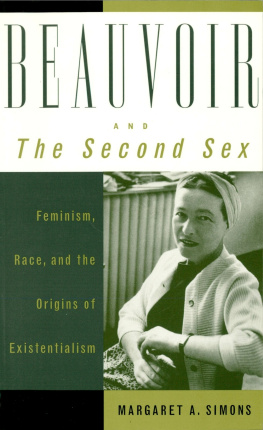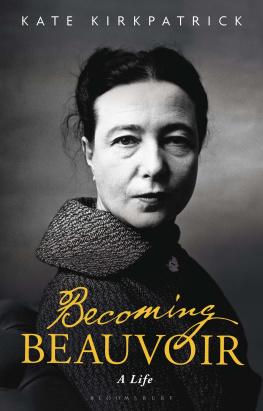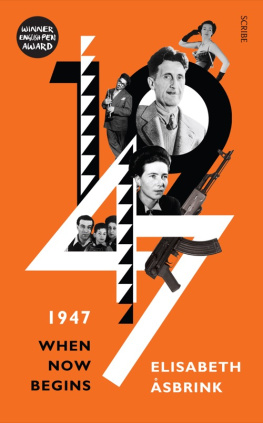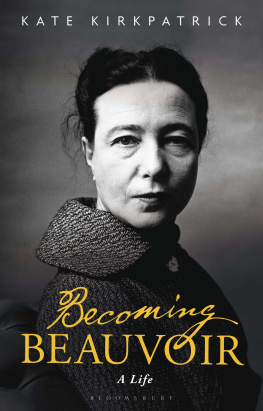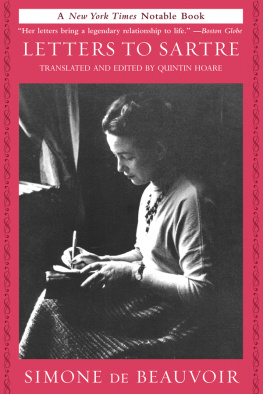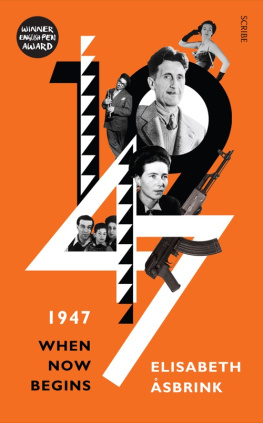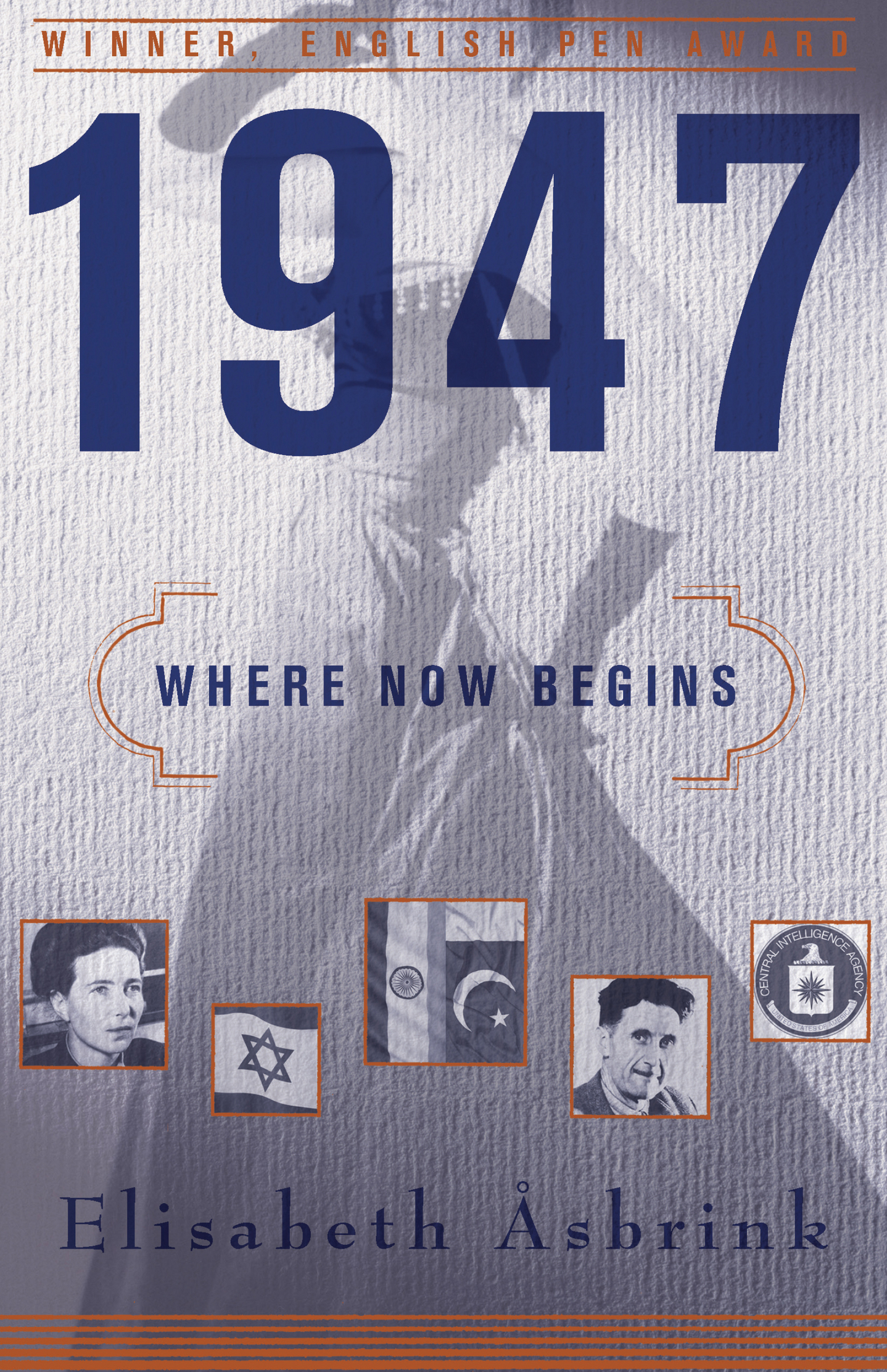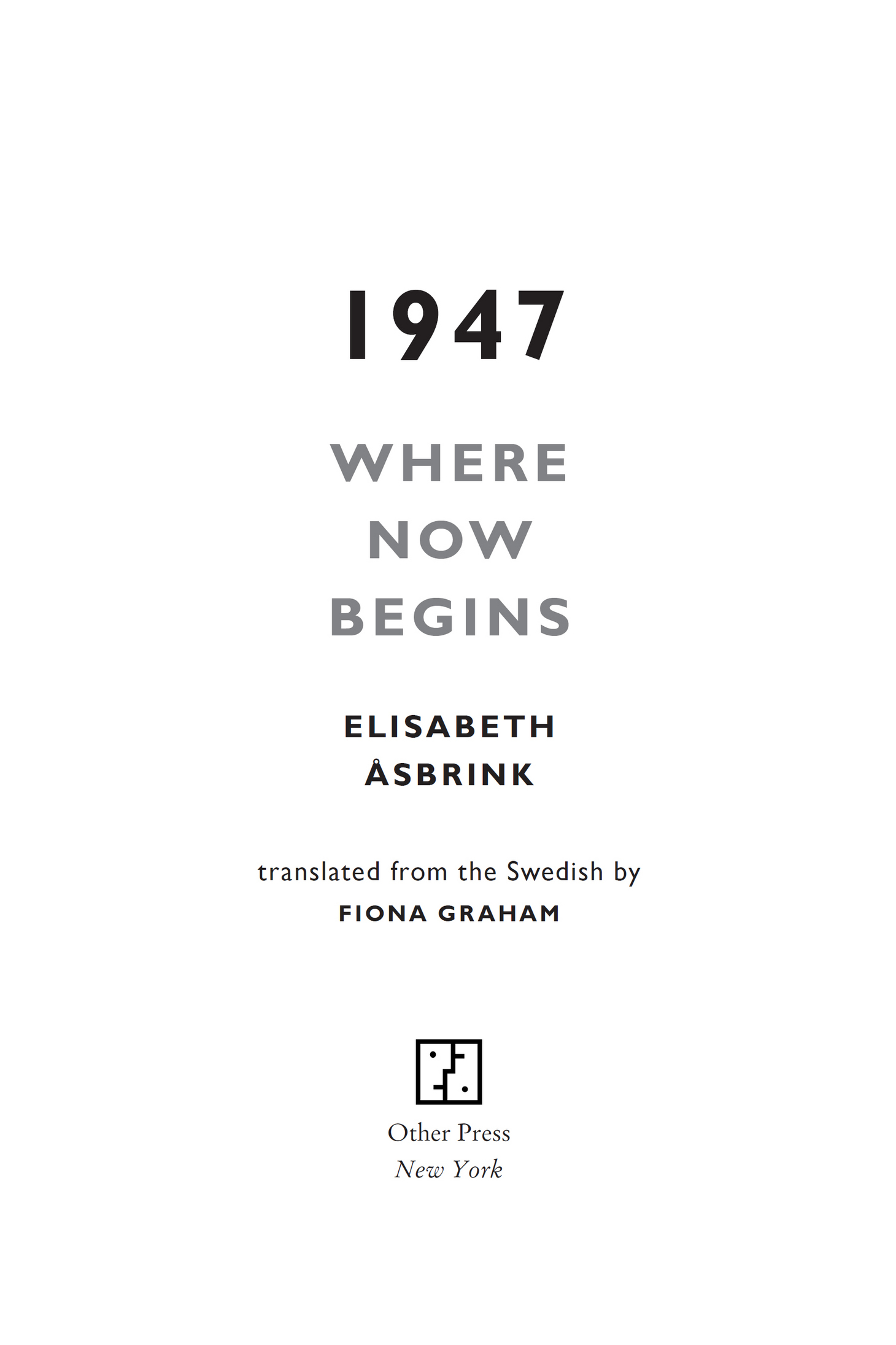Contents
Copyright Elisabeth sbrink 2016
Originally published in Swedish as 1947 by Natur & Kultur, Stockholm, in 2016
First published in English by Scribe, London, in 2017
English-language translation copyright Fiona Graham 2017
George Orwell excerpt on from Politics and the English Language, copyright George Orwell, 1946. Reprinted by permission of Bill Hamilton as the Literary Executor of the Estate of the Late Sonia Brownell Orwell.
Epigraph on from Requiem for a Nun by William Faulkner, copyright 1950, 1951 by William Faulkner. Copyright renewed 1979 by Jill Faulkner Summers. Used by permission of Random House, an imprint and division of Penguin Random House LLC. All rights reserved.
Production editor: Yvonne E. Crdenas
All rights reserved. No part of this publication may be reproduced or transmitted in any form or by any means, electronic or mechanical, including photocopying, recording, or by any information storage and retrieval system, without written permission from Other Press LLC, except in the case of brief quotations in reviews for inclusion in a magazine, newspaper, or broadcast. For information write to Other Press LLC, 267 Fifth Avenue, 6th Floor, New York, NY 10016. Or visit our Web site: www.otherpress.com
The Library of Congress has cataloged the printed edition as follows:
Names: sbrink, Elisabeth, author. | Graham, Fiona, (translator of Swedish), translator.
Title: 1947 : where now begins / Elisabeth sbrink; translated from the Swedish by Fiona Graham.
Other titles: 1947, where now begins | Nineteen forty-seven, where now begins Description: New York : Other Press, [2018]
Identifiers: LCCN 2017040450 (print) | LCCN 2017054651 (ebook) |
ISBN 9781590518960 (hardcover) | ISBN 9781590518977 (ebook)
Subjects: LCSH: Nineteen forty-seven, A.D. | Civilization, Modern20th century. | History, Modern20th centuryChronology. |
Holocaust, Jewish (19391945)Influence.
Classification: LCC CB425 (print) | LCC CB425 .A768 (ebook) | DDC 909.82dc23 LC record available at https://lccn.loc.gov/2017044651
Ebook ISBN9781590518977
v5.2
a
Contents
In den Flssen nrdlich der Zukunft
werf ich das Netz aus, das du
zgernd beschwerst
mit von Steinen geschriebenen
Schatten.
In the rivers north of the future
I cast the net you
haltingly weight
with stone-written
shadows.
Paul Celan
Translation after John Felstiner
The time is not quite what it ought to be.
On January 1, 1947, The Times informs the people of Great Britain that they cannot rely on their clocks. To be quite certain that the time is what it purports to be, they are to tune in to the BBC, which will broadcast extra bulletins in order to keep track of it.
Electric clocks are affected by the frequent power cuts. Mechanical ones also need overhauling. Maybe its the cold. Maybe things will improve.
The war has seen nearly 50,000 tons of bombs dropped on London by the Luftwaffe. More than 4.5 million buildings in Britain are damaged. Some towns have been all but wiped out, such as the Scottish port whose airraids even got a name of their own: the Clydebank Blitz.
All across Europe, there is damage. The Austrian city Wiener Neustadt once had 4,000 buildings; now only 18 are intact. A third of the houses in Budapest are uninhabitable. In France, 460,000 buildings are in ruins. In the Soviet Union, 1,700 small towns and villages have been demolished. In Germany, around 3.6 million apartments have been blitzed a fifth of the countrys homes. Half the homes in Berlin itself are derelict. In Germany as a whole, over 18 million people are homeless. A further 10 million in Ukraine have no roof over their heads. All of them have to cope with having only limited access to water and a sporadic electricity supply.
Human rights are nonexistent, and hardly anyone has heard of the crime of genocide. Those who survived have only just begun to count their dead. Many travel home, without finding it; others travel anywhere except back where they come from.
Europes countryside has been razed and plundered, and tracts of land are flooded by sabotaged dams. Fields, woodland, farmsteads lives, food, livelihoods lie under ash, covered in sludge.
Greece lost a third of its forests during the German occupation. Over a thousand villages there have been burned to the ground. In Yugoslavia, over half the countrys livestock have been slaughtered, and the plundering of grain, milk, and wool has left the economy in ruins. Not only did Hitlers and Stalins armies wreak destruction as they advanced, but they were ordered to destroy everything in their path when they retreated. This scorched-earth tactic was intended to leave nothing behind for the enemys troops. In the words of Heinrich Himmler: Not one person, no cattle, no quintal of grain, no railway track must remain behindThe enemy must find a country totally burned and destroyed.
Now, after the war, everyone is on the lookout for watches stealing, hiding, mislaying, or losing them. The time remains indeterminate. When its eight in the evening in Berlin, its seven in Dresden, but nine in Bremen. Russian time prevails in the Russian zone, while the British impose summer time on their part of Germany. If someone asks what time the clock says, most will say its gone. The clock, that is or do they mean time itself?
JANUARY
Arab al-Zubayd
Hamdeh Joma is a strong-willed girl, but somewhere there is a limit. And it is getting closer.
When the man with the magic box comes to the village, he calls the children together. The little ones are to ask their mothers for grain, the older ones are to pilfer food, but everyone has to come to see the magic box, which so the man claims eats sugar and shits sweets. They laugh and pay him in bulgur wheat, lentils, and oats. He tells his tales and shows his pictures, which turn into stories when he puts a stick into the cardboard box and stirs.
Hamdeh is sixteen and cant get enough of the moving pictures magic. She filches bread from her mother to pay the man, takes handfuls of lentils from the stores. She thinks of her uncle, who owns a great many hens and five cockerels. During his afternoon nap, she sneaks in and steals some eggs just so she can see the pictures moving again, hear about heroes and freedom fighters, feel the world expand. But as she leaves her uncles tent with the eggs, he awakes, catches the girl, and strikes her. The eggs are smashed, and that night Hamdeh, her apron soiled, sleeps in a cave to avoid his anger. But that blows over.
Every evening, when he has told his stories to an end, the man with the magic box concludes with the same words: This is the darkness, this is the night.
Washington
In the Oval Office at the White House, President Truman sits writing his diary. He wakes early on January 6 and fits in a few hours work before strolling down to the station to meet his family. A good 35-minute walk, he notes, glad to have his wife and daughter back home. The great white jail is a hellish place to be alone. The floors creak and crack at night. It takes little imagination for him to picture old James Buchanan wandering back and forth, full of anxiety over a world beyond his control. In fact, the unquiet spirits of many presidents traipse up and down the stairs, complaining about what they should have done better and what they failed to achieve. Some of his late predecessors are absent, Truman writes in the blue diary. They simply dont have the time, being far too busy controlling heaven and governing hell. But the others, the poor, tormented presidents who were misrepresented in history, get no rest. The White House is a hellish place.


